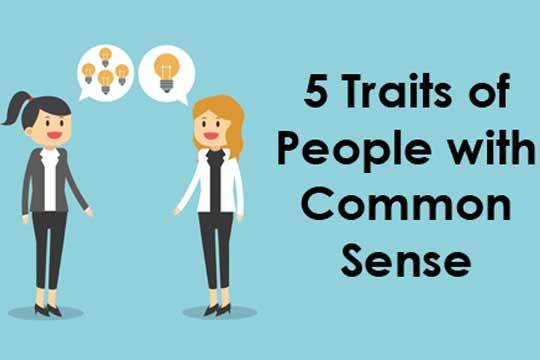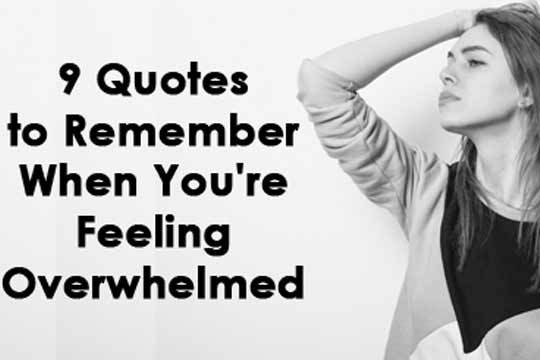Helene Lerner's Blog, page 12
June 30, 2016
Small Everyday Habits of Successful People

Just a few tweaks to your daily routine can put you on the track to success. Here are some habits that stand out:
Plan your day the night before: Make a mental note of what you need to accomplish the next day. Plan your outfit if it takes you a long time to get ready.
Wake up earlier: An hour makes all the difference. Experts say that early risers can anticipate problems and solve them quickly.
Eat breakfast: With your extra hour, enjoy the most important meal of the day. You’ll need the brain fuel to boost creativity.
Make a list: Jot down a few short and long term goals. Research shows that a few minutes of visualization can de-clutter your mind and help you focus.
Read more: Feed your mind with new ideas.
- Barbara Bent
7 Quotes to Remember When You Feel Unloved

Feeling unwanted is painful. But you’re not alone:
1. “I know what it is to feel unloved, to want revenge, to make mistakes, to suffer disappointment, yet also to find the courage to go forward in life.”
- Tim O’Brien
2. “Being unwanted, unloved, uncared for, forgotten by everybody, I think that is a much greater hunger, a much greater poverty than the person who has nothing to eat.”
- Mother Teresa
3. “One remedy for the fear of not being loved is to remember how good it feels to love someone. If you're feeling unloved and you want to feel better, go love someone, and see what happens.”
- Dossie Easton
4. “The trouble is not that I am single and likely to stay single, but that I am lonely and likely to stay lonely.”
- Charlotte Brontë
5. “The only time we waste is the time we spend thinking we are alone.”
- Mitch Albom
6. “I don’t know what’s worse: to not know what you are and be happy, or to become what you’ve always wanted to be, and feel alone.”
- Daniel Keyes
7. “If you learn to really sit with loneliness and embrace it for the gift that it is…an opportunity to get to know YOU, to learn how strong you really are, to depend on no one but YOU for your happiness…you will realize that a little loneliness goes a LONG way in creating a richer, deeper, more vibrant and colorful YOU.”
- Mandy Hale
5 Traits of People with Common Sense

There’s a popular phrase that reads: “Common sense is a lot like deodorant. The people who need it most never use it.” When to use common sense seems self-explanatory, but what are habits of people who always use this sense to navigate through life? Read on:
They accept failure: Knowing when you’re wrong and actually admitting it are important. Being stubborn won’t move you forward, but learning from your mistakes and picking the better option will.
They are loyal: Keeping promises is paramount. These people know how important it is to be able to rely on others.
They’re not afraid to say “no”: Setting boundaries is one way of maintaining a moral compass. They’re not over cautious, but they practice a keen sense of awareness to know when something is a bad idea and they aren’t afraid to voice their opinion.
They’ve got will power: They know that hard work pays off. Putting your nose to the grindstone now means you’ll reap greater rewards in the future.
They sense danger: It’s helpful to know when a person or situation poses a threat. They don’t make excuses for people who act out in harmful ways, instead, they foster relationships with wholesome people.
- Barbara Bent
3 Ways to Deal With Your Inner Critic

Somewhere in the growing up process we learn to criticize ourselves, to be hard on ourselves, and to even berate ourselves. Some do it less, some more—but unless your parents were perfect, it’s likely you developed what has been called your “inner critic.”
One minute you’re feeling proud of yourself and brimming with confidence and later in the day you realize you’re confidence had disappeared. What happened? Your inner critic took over and blew your confidence up. It can happen to the best of us. What can you do?
Of course, you can argue and fight with your inner critic. Or you could ignore it and pretend it isn’t there. However, if you’ve tried these tactics you know they don’t work very well. Here’s what to do instead:
Know where your inner critic came from
Our inner critic, that voice inside saying, “I knew I would fail—why did I even put myself out there?!” might have come from your parents, your teachers, your sports coach in school, your religious upbringing, your friends or siblings. The point is you had to learn how to criticize yourself—it’s not wired in. I have three grand-daughters and the oldest just turned two. I don’t hear them putting themselves down. Children have to learn how to do that.
Thank your inner critic
My past experience as a psychotherapist and my ten years as a coach have taught me that all our behavior has a positive intent behind it. I’m not saying all our behaviors are positive. The consequences of some of our behaviors might not be positive—but the intent is. For instance, when we procrastinate, what’s the positive intent there? One positive intent might be to stay comfortable and avoid what we don’t want to deal with.
Your inner critic is trying to help you. Sure, it’s misguided help and you might feel, “With friends like that who needs enemies?”—but think about it. If your inner critic is trying to help you, that means you can build a partnership and eventually a friendship with that aspect of yourself. Begin by having a conversation with your inner critic. If that sounds crazy, it’s not.
We talk to ourselves all day long. So talk to your inner critic—begin by thanking it for doing the best it can to help you. (Wouldn’t that be better than continuing to criticize yourself?) Get to know what your inner critic is thinking and how it’s trying to help you. How do you do that? Ask.
Listen. Be patient. Ask more questions. When the timing is good, ask your inner critic if it would be open to considering more effective ways to help you other than criticizing, blaming and judging you. Keep the conversation going, say thank you and then continue to talk to your inner critic over the next few weeks and months. Just avoid the temptation of criticizing your inner critic and you’ll do fine.
Get objective feedback
When you’re not feeling confident with yourself or when you’re angry with yourself, you lose your objectivity. That’s when it’s a good time to confide in someone you trust and tell them what your inner critic has been saying. Someone with outside perspective can help you help your inner critic shift its perspective and be more optimistic and solution-focused.
One thing is for sure: Your inner critic isn’t objective. It’s good at pointing out all the obstacles to your goal but it isn’t so good at building your confidence. Your inner critic needs help. It needs outside perspective. That’s what friends, mentors and coaches are for, so use them. Over time your inner critic will learn to be less critical and more affirming.

- Alan Allard, Creator of Enlightened Happiness
June 29, 2016
The Healing Power of Laughter

It’s contagious, but in a good way. Getting your giggles out can have a positive impact on your health:
Relieves stress: It turns your stress response on and then off, resulting in increased blood circulation that makes you feel more at ease. It can eliminate physical symptoms of stress because it triggers muscle relaxation.
Stimulates organs: When you laugh, you inhale more oxygen-rich air, which in turn stimulates your lungs and heart. This leads to the release of more endorphins (your body’s natural painkillers) in the brain.
Boosts immune system: When you chuckle, your brain releases neuropeptides that fight stress and may have an effect on serious illnesses.
Makes you happy: The simple act of wearing a smile and even forcing a laugh can make you feel a little more relaxed and uplifted.
It really works! Norman Cousins, a successful editor at the Saturday Review, travelled to Russia on business and returned with a life-threatening degenerative disease that caused him much pain. Believing stress to be the cause, he amped up doses of vitamin C and locked himself in a hotel room, where he watched hours of comedy television. Cousins claimed that after 10 minutes of hearty laughter, he could sleep pain-free. His condition improved over the following months and he was able to work again. A true testimony to the healing effects of positive thinking.
- Barbara Bent
9 Quotes to Remember When You're Feeling Overwhelmed

For those times you feel like you’ve been dealt more than you can bear:
1. “Even from a dark night, songs of beauty can be born.”
- Mary Anne Radmacher
2. “When life gets hectic and you feel overwhelmed, take a moment to focus on the people and things you are most grateful for. When you have an attitude of gratitude, frustrating troubles will fall by the wayside.”
- Dana Arcuri
3. “Worrying is carrying tomorrow's load with today's strength- carrying two days at once. It is moving into tomorrow ahead of time. Worrying doesn't empty tomorrow of its sorrow, it empties today of its strength.”
- Corrie ten Boom
4. “Anxiety's like a rocking chair. It gives you something to do, but it doesn't get you very far.”
- Jodi Picoult
5. “It’s OKAY to be scared. Being scared means you’re about to do something really, really brave.”
- Mandy Hale
6. “I promise you nothing is as chaotic as it seems. Nothing is worth diminishing your health. Nothing is worth poisoning yourself into stress, anxiety, and fear.”
- Steve Maraboli
7. “Every day we have plenty of opportunities to get angry, stressed or offended. But what you're doing when you indulge these negative emotions is giving something outside yourself power over your happiness. You can choose to not let little things upset you.”
- Joel Osteen
8. “We don't realize that, somewhere within us all, there does exist a supreme self who is eternally at peace.”
- Elizabeth Gilbert
9. “What lies behind us and what lies before us are tiny matters compared to what lies within us.”
- Ralph Waldo Emerson
4 Life Lessons That Confident Women Have Learned

Being a confident woman isn’t about perfection. It’s about learning and embracing your true self in all its imperfections. As you read through the four lessons, give yourself credit and support for the progress you’ve made in your own life and the lessons you’ve learned.
Being “nice” is over-rated
Being “nice” isn’t the same thing as being considerate or thoughtful of others. Being “nice” is the misguided strategy of people-pleasing out of fear of being judged and rejected. A confident woman has learned that if someone is upset with her, that’s not her problem. It’s not that a confident woman can’t hear feedback. She can hear it just fine—and then she makes up her own mind.
There is no substitute for confidence
Confident women have learned the hard way that no matter what you do (or don’t do) someone is going to complain and blame. A confident woman knows the more she acts and speaks from a place of confidence the more others listen and follow her lead. A confident woman speaks up, confident in her own voice. That confidence is what inspires those around her to trust her opinions, experience and leadership.
Life-balance is an illusion
Confident women have learned the hard lesson they can’t have that mythical “balanced life.” Realizing that, the confident woman takes pride in making her presence felt deeply in all areas of her life. The confident woman has learned to harmonize her life and while the time she devotes to the various areas of her life ebbs and flows, her love and commitment is constant. The confident woman lives from passion and peace of mind, not from a need to pursue the impossible.
Gender inequality can’t stop you
Everyone knows the gender gap at work and in life is alive and well. However, confident women have learned that although they’re sometimes victimized by gender inequality, they don’t have to be a victim to it. Confident women stand up, speak up, and take the lead. They join the ranks of millions of strong women whose lives are a declaration: “You might slow me down but you will never stop me—deal with it.”

- Alan Allard, Creator of Enlightened Happiness
June 28, 2016
9 Facts You May Not Know About Depression

This disease can take control of your life. It’s more than just sadness--it’s strong and it’s persistent. But here are some things you might not already know:
1. Depression affects women more than men (at roughly twice the rate).
2. PMS can be more severe than you thought: PMDD (premenstrual dysphoric disorder) appears in women who experience unusually severe symptoms (sudden mood swings, change in food cravings, trouble sleeping) the week before their period.
3. There are three types of depression: Major depression is most severe and is often experienced in episodes that can occur once or several times in someone’s life. Dysthymic disorder can last up to two years, but with less intense symptoms. Minor depression is similar to the first two, but with less severe symptoms that don’t last as long.
4. Hormonal changes can trigger depression in women: Postpartum depression can happen after childbirth. Some women experience depression during their transition into menopause.
5. Depression is often experienced as anxiety.
6. Exercise may help to alleviate symptoms: Some psychologists prefer to walk around with their clients instead of traditional “couch time.”
7. A study found that girls who started puberty early are more likely to suffer from depression.
8. There is a correlation between depression and substance abuse in some cases.
9. One myth about depression is that it’s just a “normal part of aging”: If you or a loved one are experiencing symptoms of depression, don’t ignore them. Reach out to a doctor or support group.
- Barbara Bent
3 Differences In What Men and Women Want (and How To Satisfy Both)

Men and women are different in oh so many ways! That is what attracts us and yes, also challenges us! Let’s get to the basics: sexuality, emotional intimacy, and interests, tastes and sensibilities. So totally different!
1. Sex
As a family counselor for over 29 years I have heard countless stories from men and women, separately and together, about sex. Men most often prefer a direct approach, while women typically want a romantic setting, music, candlelight, massage, and kissing to set the scene.
2. Emotions
Men generally don’t want to talk about feelings as much as women do and seem to shy away from their feelings, accessing anger or happiness more easily than pain and fear. In many sessions I have heard a man say to his partner, “Just get to the point.”
3. Tastes, sensibilities, and interests.
Women are commonly more interested in aesthetics, beauty, fashion, interior design, art, and theater. Men are often more interested in sports, politics, business, and the stock market. Of course these are generalizations, yet they frequently hold true.
So how is it possible to satisfy both men and women? Some thoughts come to mind:
Communication: Defining our similarities and differences (and expressing the feelings they evoke) contributes to happy relationship. Not in the heat of frustration or disappointment, but in a neutral time set aside weekly for “How are we doing?” check-ins. Learning how to express desires, requests, and feelings on a regular basis goes a long way toward creating harmony and preventing built-up resentment.
Satisfy some of our individual preferences on our own and with our friends. Our intimate partners cannot be expected to fill all of our needs. Taking personal time for reflection to connect with our genuine selves is essential. Friendships we find interesting and fun add to our satisfaction and to our intimate relationships.
Prioritizing pleasure: Although most of our daily lives are filled with work, family needs, and many other responsibilities that sometimes feel stressful, we all need to laugh and play, dance and sing, relax and have fun. We need to keep ourselves happy. Schedule at least one thing every day that you enjoy. Pleasured people bring pleasure to others.
Deep within, we all want the same thing — happiness. We want trust, respect, sex, fun, attention, affection, and support.
Our capacity to give that to each other rests on nourishing our genuine selves. Men and women who are willing to share their strengths, accept their vulnerabilities, and prioritize pleasure have the tools to turn their relationship into a beautiful dance.

Jane Wyker, author of Soul Selfish: The Awakening of a ‘Good Girl’
June 27, 2016
What Could Brexit Mean for UK Women?

Britain is reeling after the UK voted to leave the European Union last Thursday. The media focuses mainly on the economic impact of the decision, but what about women’s rights? Surely the exodus will affect efforts towards gender equality.
The historic referendum, called “Brexit,” gained most support from England and Wales, while Scotland and Northern Ireland voted to stay in the EU. British Prime Minister David Cameron announced he would step down by October as a result of the decision. Overall, a lot is up in the air right now.
But back to women’s rights--the EU has been a staunch supporter of equal pay for years, as well as thethe idea that firing a pregnant woman simply because she is pregnant is sex discrimination. The rights to paid maternity leave, paid time off for fathers caring for sick children and paid time off for prenatal appointments are also on the EU’s agenda.
Eradicating violence against women is another area in which the EU has made great strides. The European Victims Directive and European Protection Order are just two examples. A set of guidelines is in place to combat Violence Against Women and Girls (VAWG) that addresses perpetrators of these crimes.
Overall, the EU has set action plans to enforce gender equality and women’s rights. Since the UK decided to separate from the EU, some UK women fear that these goals will be pushed to the backburner, considering the political and economic upheaval that Brexit has created. For now, all that’s left to do is wait and hope that the fight for women’s rights will remain a priority in the UK.
- Barbara Bent
Helene Lerner's Blog
- Helene Lerner's profile
- 9 followers



